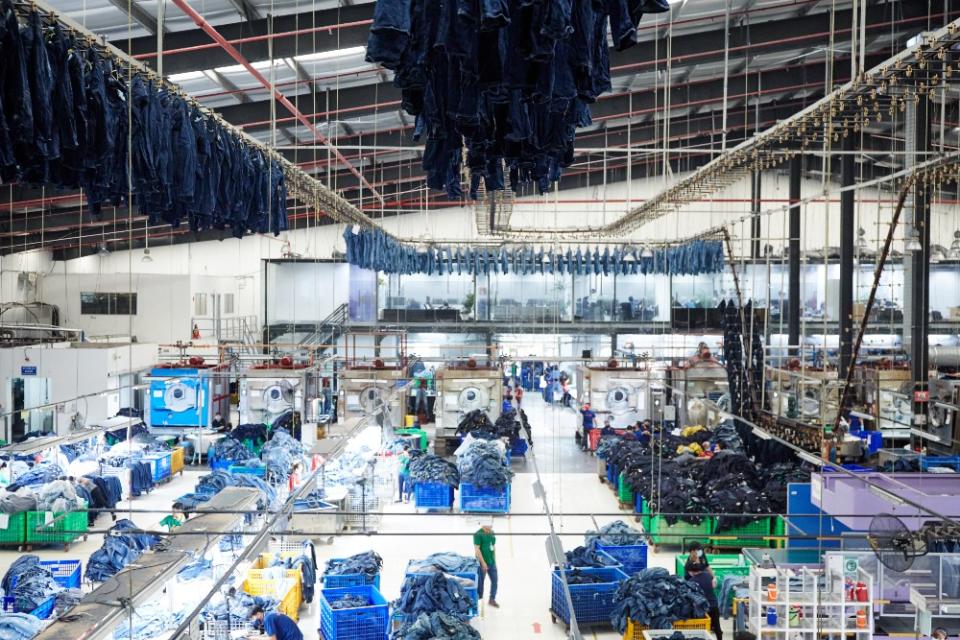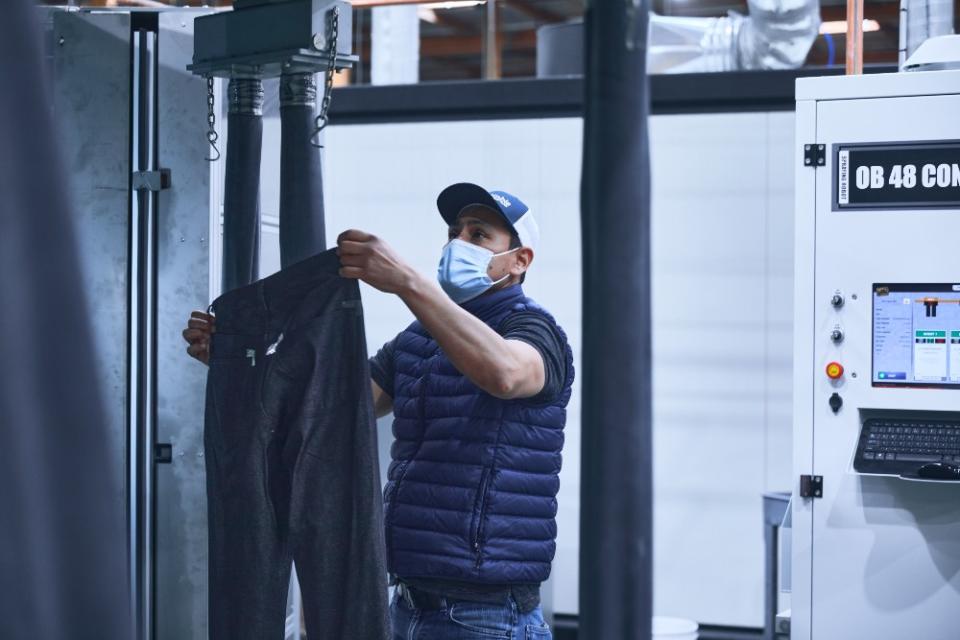Saitex Scores High Marks for Environmental Efforts from Higg, B Lab

Vietnam-based denim manufacturer Saitex has received the highest score in the country based on the Higg FEM verification standards, scoring 96 out of 100.
The supplier, which opened an outpost in the greater Los Angeles area in 2021, was also recognized for its environmental protection efforts as a Best for the World B Corp in 2022, according to the company’s latest impact report. Saitex achieved an overall B Impact score of 105.6, versus the median score of 50.9.
More from Sourcing Journal
Mind the Gap: How Brands Can Use 3PLs to Fill in the Missing Pieces
Collaborations and Advanced Inputs Drive Material Innovation
Organizers Reflect on the Evolution of Sourcing at Magic on Show's 20th Anniversary
The vertically optimized firm, which includes a mill that feeds into its garment manufacturing arms in Vietnam and the U.S., has taken steps to minimize its environmental output through the conservation of water. A closed-loop water recycling system has helped the company move toward circularity in its operations. Though the firm’s orders increased by 32 percent in 2022, it was able to decrease its water consumption by 11 percent by optimizing water use and prioritizing designs that require less H2O. Through upgrades to water and sludge segregation systems, and a switch to new enzymes and stone wash replacements, it reduced its sludge output by 25 percent.

Saitex has also prioritized responsible raw material sourcing, soil conservation, clean air and renewable energy, working with partners and certifiers like Bluesign to eliminate harmful substances from the production process, as well as GOTS, GRS, Oeko-Tex and Regenagri, an international regenerative agriculture program. Emissions from electricity, steam, gas and oil use decreased by an average of 12.5 percent per garment. Saitex cut its use of gas power by 8.8 percent per garment. The on-site community farm on its Vietnam campus incorporates a greenhouse, open air and hydroponic farming methods to increase biodiversity and provide healthy, organic food for workers. About 50 percent of the produce that is grown is donated to the workforce, with the rest sold on the local market.
Saitex has also invested in advanced technology, including AI, machine learning, deep learning, big data, IOT, RFID, robots, and robotic process automation. Lifecycle assessments in collaboration with Ecochain, a partner since 2019, provide a comprehensive mapping of operations to foster transparency. Investments in CAD and computer vision help eliminate waste during the design process. Lifecycle assessment studies led the company to launch its fabric and product labeling convention, which follows a nutrition label format, helping designers to make more informed decisions about fabric selection.

Programs like Rekut, Saitex’s production program for the disadvantaged and disabled, also grew during 2022. Rekut currently employs 90 associates in Vietnam, and has invested $155,000 in making facilities accessible, outfitting them with amenities, and providing transportation. During 2022, Madewell launched a collaboration with the program, developing a tote bag using upcycled production scraps. Ikea launched a capsule of lifestyle goods, including kimonos and tote bags.
Saitex’s textile upcycling project, Save Trees Eliminate Landfills And Protect Our Planet (STELAPOP), transformed 30,000 kilograms of textile waste from the company’s operations into a wood replacement material that was used to create furniture and other goods. In March 2022, premium denim brand Edwin USA launched a line of furniture, from tables to lounge chairs and book cases, all made from upcycled denim.

